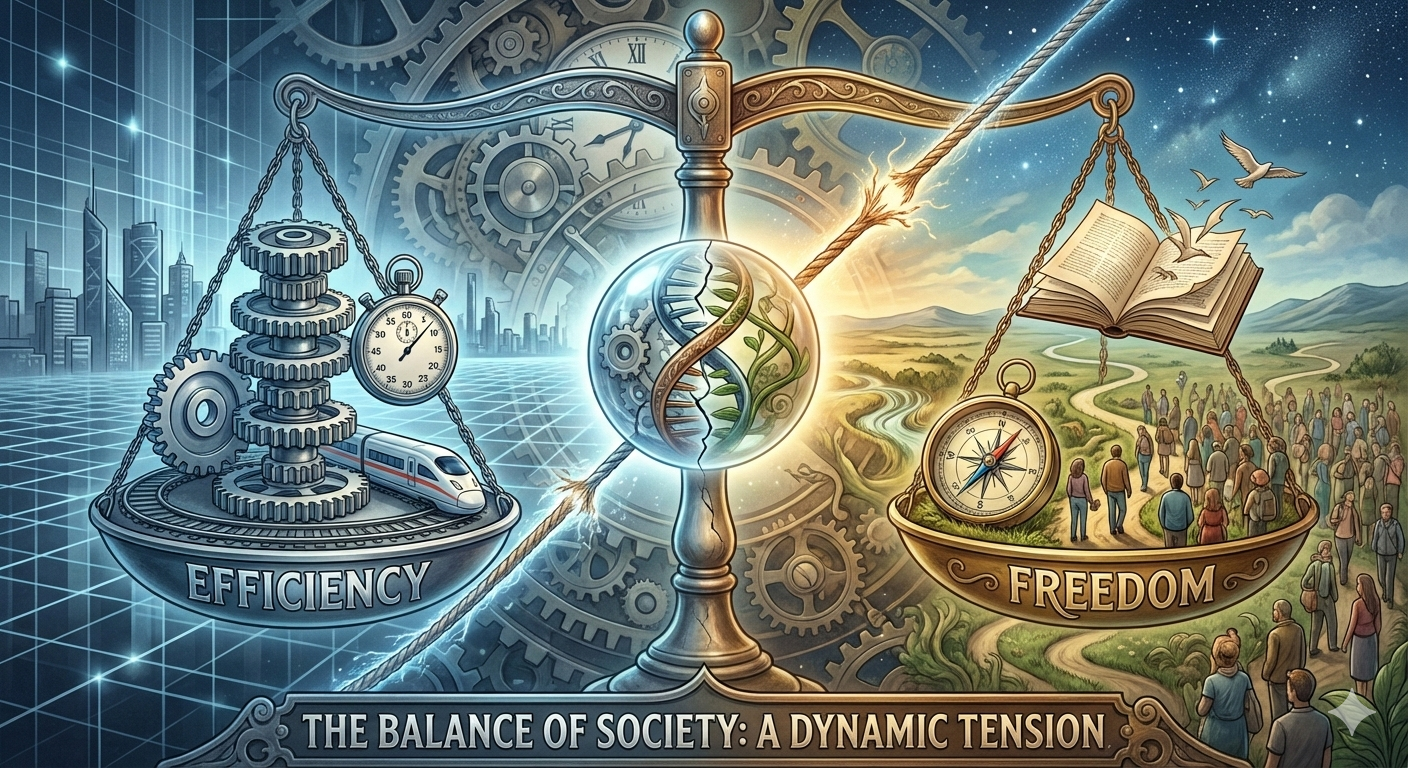Living in populist times, libertarians might feel vindicated in their criticism of those who imagine themselves as guardians of all higher wisdom and moral purpose, elites who must steer society against the worst instincts of the baser people. Some even cave to the populist temptation of glorifying the masses in their simplicity of mind, their rusticness of spirit, their no-nonsense deference to de-intellectualized traditions.
Condescension and romanticism blend into this view of the plebeian man as naturally irreflexive and prone to lose himself in the collectivist flow, a whip for the guilt-ridden intellectual to self-flagellate with. Many libertarians fit this type of the solitary erudite striving to understand through analytical reason what he can’t embrace through sheer sentiment. Psychologists Iyer et al. have concluded that self-professed libertarians are likely to process their intuitions in a cerebral and logical way, rather than case-by-case reactions of a visceral or emotional nature. In the terminology of Simon Baron-Cohen, they’re “systemizers” who treat singular experiences as instances of an underlying structure, of which they try to deduct rules from observation and ratiocination; and then, from the fundamentals they have discovered, derive a coherent worldview which can render a pattern of behavior to be applied to any situation.
Iyer’s conclusions support a distinction that Matt Zwolinski and John Tomasi make in The Individualists, their intellectual history of the liberty movement, between two strands of libertarian thinkers, one of which he calls rationalists. “Many strict libertarians saw their entire political philosophy flowing logically from a single axiomatic principle,” Zwolinski notes, adding that “This often gives strict libertarian theories a more systematic character than their classical liberal antecedents. Practical policy questions, for them, could be resolved almost syllogistically.” Libertarians of such persuasion are attracted to absolutist worldviews, in which moral judgment can rest “on the hard rock of principle, not the shifting sand of circumstance”, as well as monistic forms of thought, since consistency is a likelier outcome if the whole system is reduced to either a single principle, or a pre-arranged balance or hierarchy of “first principles”, a set of unquestionable priors, which come before and are presupposed by all other judgement, cascading into neat and inevitable conclusions that need but be applied to concrete cases, such that messy compromises need not be worked-out ad hoc.
This approach is already suspect. Why are we to assume reality functions systematically? or that, if it does, we can comprehend its foundations and adequately reproduce it in our minds? A fatal conceit of their own leads many a rationalist libertarian to the pitfall of desperation. Frustrated at a world that is not working according to prescription, they assume there must be some extra-systemic force at play. Politics, stemming from the unbound passions of unthinking hoi polloi, is an inexplicable intrusion in a social order that should otherwise be harmonious. The mob won’t listen to reason, they need to be tamed yet pampered and soothed like a majestic beast.
There is, however, an alternate way to understand the world which complements the rationalists’ limitations. Counterintuitively, systemizers are bad at generalizing, “this is exactly what you would expect if the person is trying to understand each system as a unique system,” writes Baron-Cohen, for “a good systemizer is a splitter, not a lumper, since lumping things together can lead to missing key differences.” They catalogue all the pieces and sharpen the edges till cutting themselves, but can’t see how they fit together. That’s a job for the other end of Baron-Cohen’s spectrum, the “empathizers.”
Empathizers navigate situations by looking at the horizon rather than the map. They’re sensitive to the shifts in expression and to particular changes, perceiving phenomena not as separate, but in terms of the relations, the shades and blurs in their borders. Therefore, empathizers rely on moment-to-moment responsiveness to cues, involving a “leap of imagination”, overcoming the uncertainty which the unknown represents by trusting one’s own capacity to figure things out as one goes.
It’s erroneous to believe empathy is giving up to a mindless drive. It is a different way to engage with information that is nonetheless better suited to deal with implicit subtleties and disparate details; it’s the same state of being aware and adventurous that forms the basis of entrepreneurial discovery, which Israel Kirzner calls “alertness.”
The greatest insight of economists, generalized by Friedrich Hayek, is that the intermingling of these partial vantage points will produce a better result than any totalizing attempt to understand and organize society. The market is not a confusion of thoughtless impulses but a language for expressing non-articulate yet very real knowledge. It’s not a taxis, a top-down designed order, but a cosmos, an emergent spontaneous order.
A Hayekian turn is needed, in theory and praxis, for our democratic century. We need to be alert to the lexicon of popular sentiment, to identify political entrepreneurs capable of apprehending its nebulous, ever flitting currents. The strand that’s opposed to rationalism, Zwolinski calls the empiricists, who are not concerned with finding all-encompassing first principles, but rather embrace the pluralistic complexity of our world, the fuzziness of things and the provisionality, the limitedness of our reasoning.
Principles have their place as useful heuristics, Hayek commended them over expediency, yet when asked why he wasn’t a conservative, he answered that while conservatives hold fast to inherited ideas, his “liberal attitude” was admiration for change. Now we should be radically Hayekian, and see that even principles are subject to change, that we ought to strive to not be libertarians in principle but in attitude; if our principles falter, we are not shaken, for we’re not mere thinkers but lovers of liberty, and we’ll follow wherever that unpredictable lady goes. If our solid rock sinks, we’ll need to learn how to sail in shifting times.







